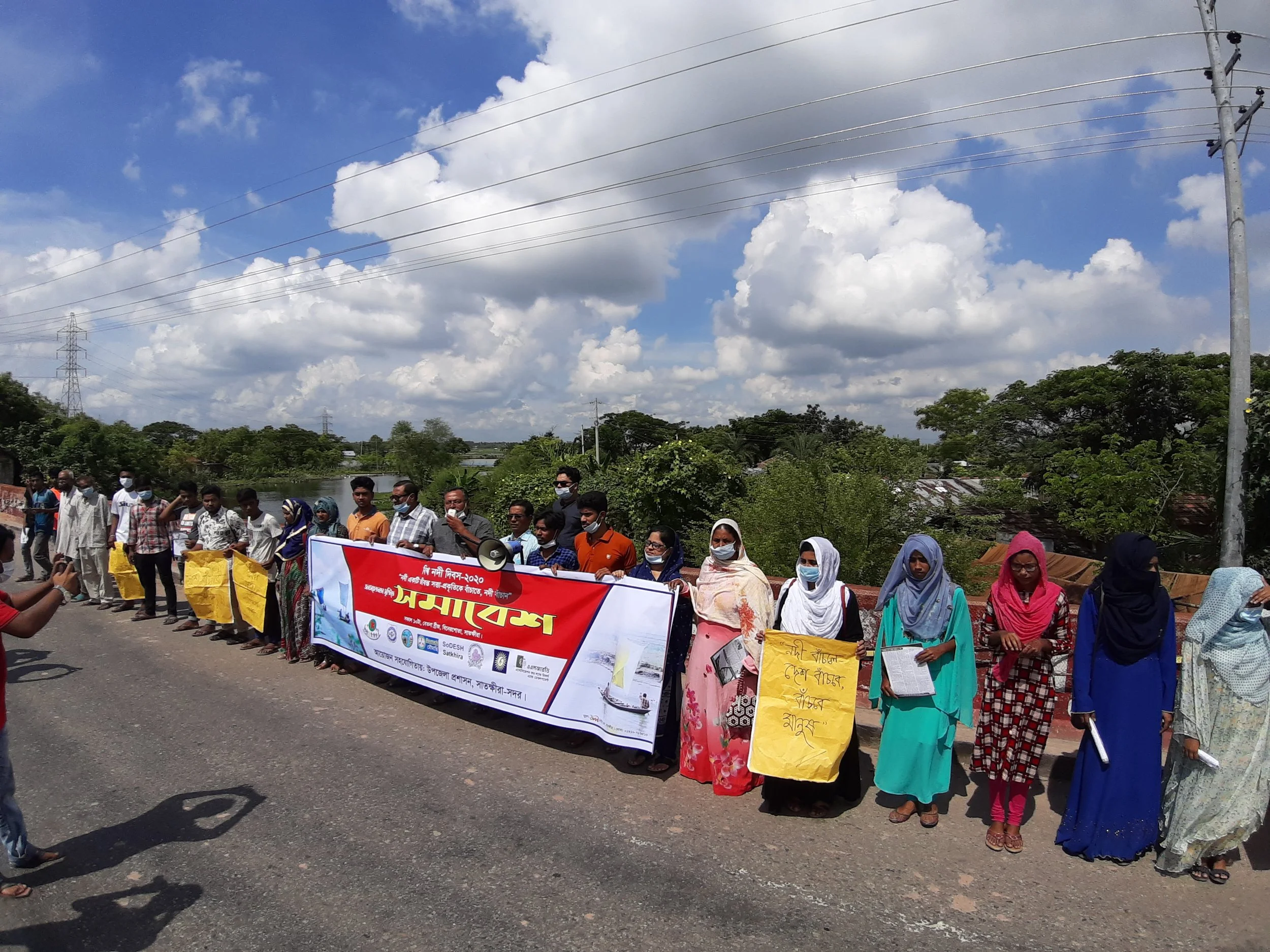Photo Credit: NARI
CJRF is excited to share the recipients of our recent participatory grantmaking pilot. For the first time ever, CJRF made small grants for new partners. Each of the following groups received $15,000 USD to use for capacity building.
Youth Volunteers Chad ACT4SDG (Chad) is a youth-led organization with a vision to build a resilient, green, and equitable Chad, where every young person is a driver of change for a sustainable and climate-just future. With this funding, they will train 100 young people between the ages of 15–30 in N'Djamena on climate-smart agricultural practices, including small-scale irrigation, composting, agroforestry, and eco-innovation like low-cost vertical gardens. They will also support two promising youth-led green micro-projects with both mentorship and seed capital.
Environmental and Social Change Foundation (ESCF) (Nigeria) works with smallholder farmers to address the impacts of a changing climate on their livelihoods. ESCF will provide capacity trainings for 40 smallholder farmers from Eluama-Lodu and Nkalunta communities in Abia State, Nigeria. These trainings will combine climate-smart agriculture with community-based forest conservation. Participants will learn practical, low-cost techniques such as mulching, crop rotation, organic composting, agroforestry, and cultivation of climate-resilient crops, alongside tree identification, reforestation methods, and responsible harvesting.
Yayasan Nusa Timor Mandiri (YNTM) (Indonesia) is a community-based organization focused on anticipating and mitigating climate change through an ecological approach, particularly the use of eco-enzymes. YNTM will use these funds to host trainings for small holder farmers. The trainings will cover techniques for producing and utilizing eco-enzymes for various purposes, such as organic fertilizers, botanical pesticides, and household organic waste processing. YNTM will also provide field mentoring to ensure the knowledge and skills from the trainings are implemented by community members.
Yayasan Media Flores Peduli (YMFP) (Indonesia) leverages media-based advocacy and strategic partnerships to amplify grassroots voices in East Nusa Tenggara, Indonesia. With this funding, YMFP will lead collaborative media campaigns to produce citizen climate journalism, inspiring stories, and photo essays showcasing farmer innovations. In a landscape that often overlooks the voices of smallholder farmers, YMFP brings together the power of storytelling, journalistic integrity, and strategic connectivity to ensure that farmers’ stories, needs, and innovations are recognized and acted upon.
Nari Associate for Revival and Initiative (NARI) (Bangladesh) is a women-led organization dedicated to gender equality and development in Kurigram District, Bangladesh. With this funding, NARI will provide trainings to leaders of women-led community-based organizations. These trainings will focus on awareness raising for climate change and climate adaptation, sustainable livelihoods, and climate-smart entrepreneurship. NARI hopes to build more resilient communities where women play a central role in decision-making, advocacy, and sustainable climate-smart solutions.
Human Rights and Environmental Action Development (HEAD) (Bangladesh) has been working to defend the human rights of marginalized communities in Satkhira District, Bangladesh, since 2008. With this grant, HEAD will build youth and community leadership on climate justice through a series of capacity building trainings. Trainings will focus on advocacy, gender-responsive climate-smart adaptation, and disaster risk reduction. HEAD will also create a district-level climate justice network, bringing together youth, NGOs, local government representatives, teachers, and community leaders to foster district-wide collaboration on climate adaptation.
Photo Credit: HEAD
Grantmaking Process
Our small grants pilot built on the connections and lessons from our 2024 Global Open Call, which tested an applicant collective participatory grantmaking process. You can read more about that pilot here.
Because the Global Open Call was our first experimental pilot, and because of CJRF capacity restrictions in 2024, we used our past experience to build out the design of that pilot. For these reasons, the Global Open Call targeted larger formal groups, and we awarded four multi-year, flexible, $200,000 USD grants.
During the Global Open Call Pilot, CJRF invited applicants to collectively review proposals and decide upon four grants. These grants went to:
Development of Educational Action Network (DEAN) in Nigeria;
Centrum Inisiatif Rakyat Mandiri (CIRMA) in Indonesia;
Mainyoito Pastoralists Integrated Development Organization (MPIDO) in Kenya; and
Samprity Aid Foundation in Bangladesh
Before the Global Open Call pilot was launched in April 2024, CJRF’s Governing Board also committed to offering a pilot for smaller groups. We knew many potential applicants would be disappointed they would not qualify because of their annual budget size. Additionally, our Board wanted to experiment with small grants, something new to CJRF.
Building off the lessons of the first pilot, internal conversations, and a recognition of still-limited CJRF capacity, we designed a Small Grants Pilot using a closed network model to identify smaller organizations for $15,000 grants. The four open call grant recipients (above) were each invited to choose up to two community-based groups in their network to receive seed funding. There was no additional decision-making by CJRF staff.
We hope that by funding new grants for groups and collectives that are known by our current partners, we can strengthen existing movements and networks and support increased resilience for communities.


